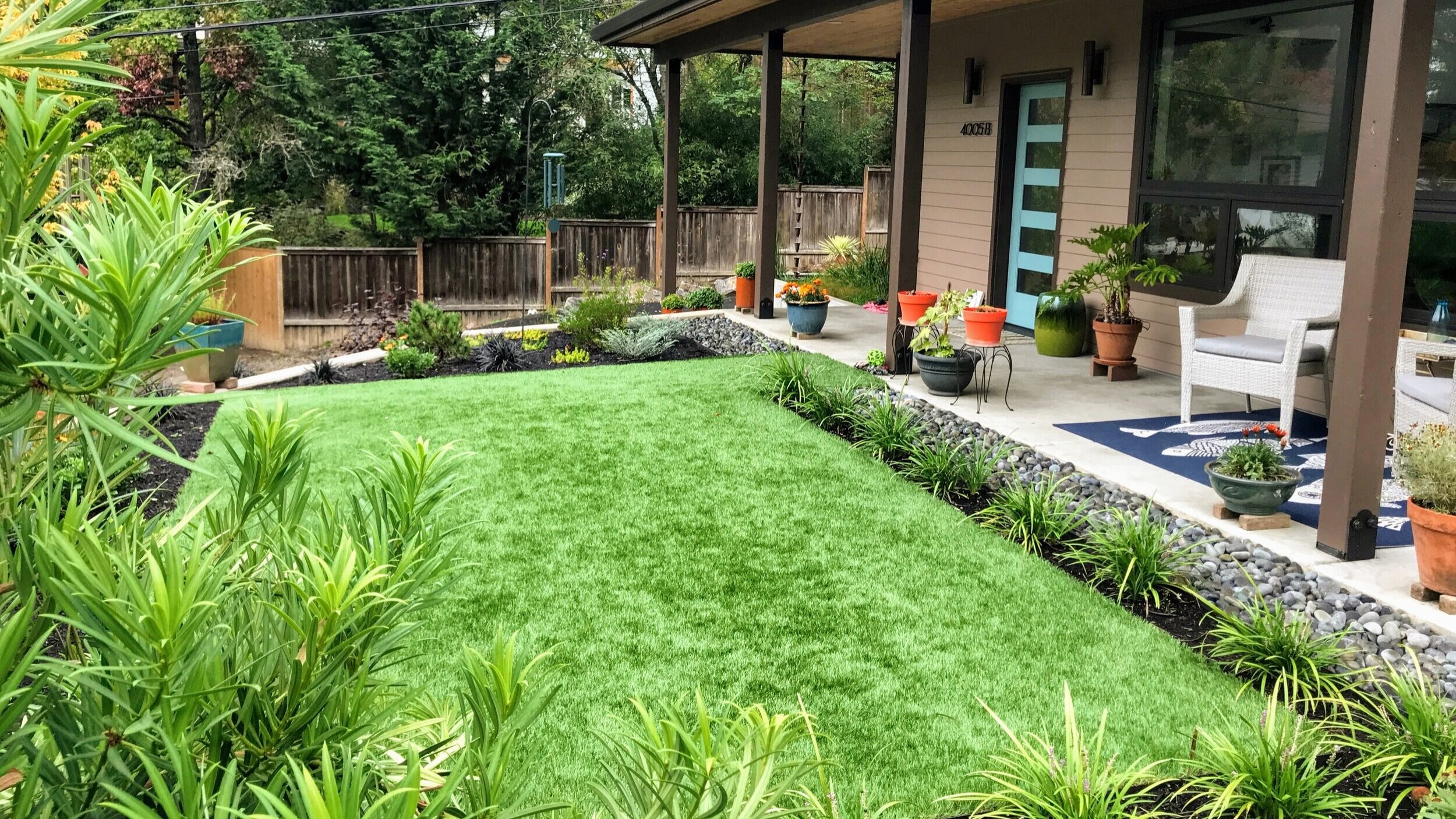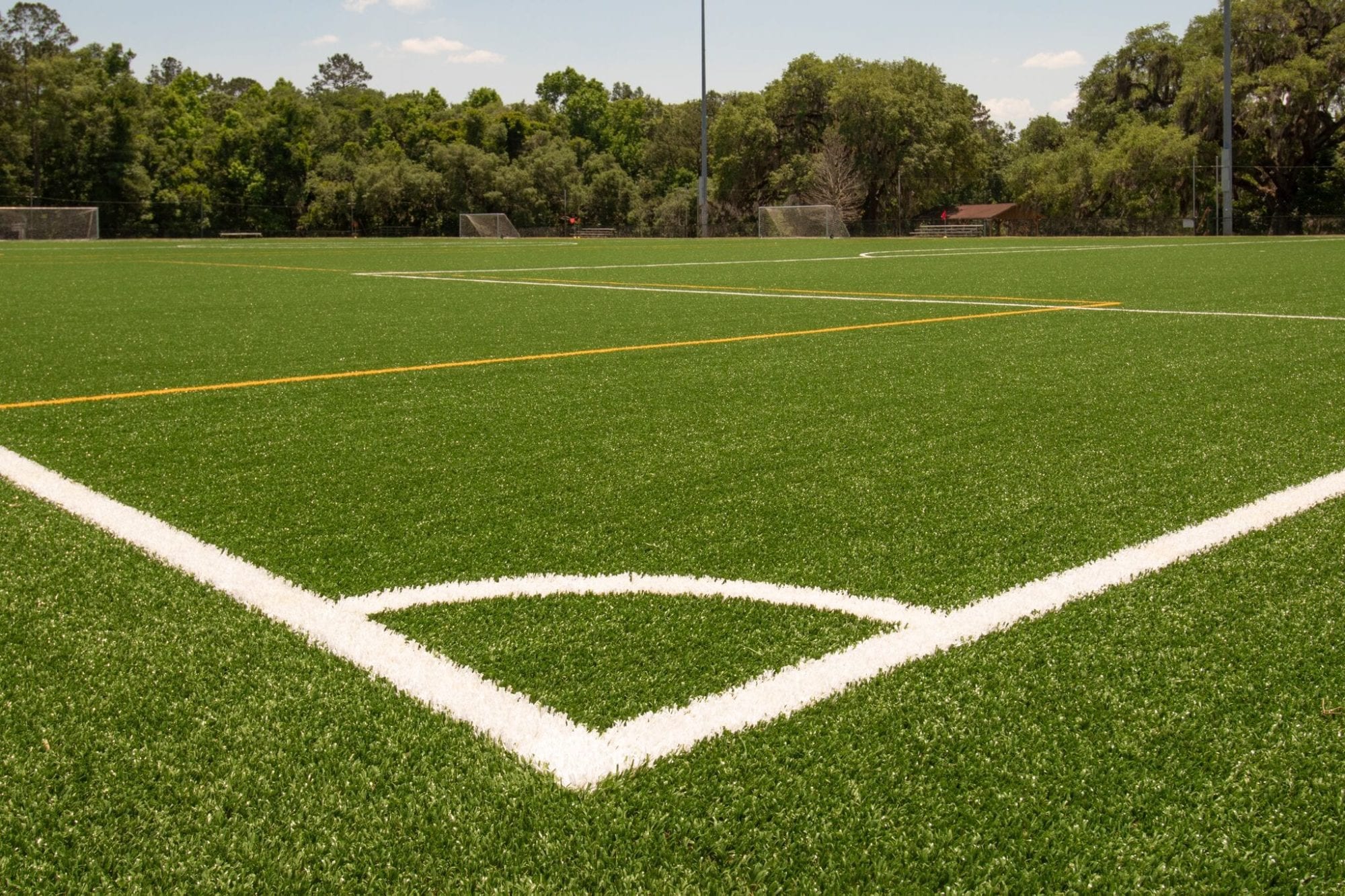Durable Arizona Artificial Turf for Home and Business Applications
Durable Arizona Artificial Turf for Home and Business Applications
Blog Article
Delve Into the Environmental Benefits of Opting for Synthetic Grass Solutions
The fostering of man-made turf solutions offers a compelling chance to attend to pressing ecological challenges. By dramatically minimizing water usage and decreasing the application of unsafe chemicals, these options not only advertise sustainable landscape design however also secure local communities. Moreover, the reduced carbon impact connected with decreased upkeep activities adds to a more sustainable approach to land monitoring. Nevertheless, the implications of these benefits expand beyond simple preservation efforts, questioning regarding their lasting effect on environment conservation and overall environmental equilibrium. Checking out these dimensions reveals an intricate interaction worth taking into consideration.
Water Preservation Perks
One of the most considerable advantages of fabricated grass is its capacity to preserve water. In contrast, fabricated lawn does not need watering, substantially minimizing the general demand for water sources.
By getting rid of the need for routine watering, artificial lawn adds to sustainable landscape methods and helps minimize the environmental effect of excessive water usage. Moreover, the conservation of water encompasses the reduction of overflow, which can bring about soil disintegration and river pollution.
Furthermore, the installment of synthetic grass allows towns and home owners to allot water sources much more effectively, concentrating on essential usages such as alcohol consumption water and agriculture. The shift towards synthetic grass not just promotes responsible water usage however likewise lines up with more comprehensive ecological objectives focused on preserving natural sources.
As areas significantly prioritize sustainability, the water preservation advantages of synthetic grass provide an engaging instance for its adoption in industrial and property landscape design jobs.
Lowered Chemical Use
The change to fabricated grass dramatically lowers the dependence on chemical therapies frequently utilized in natural turf maintenance. Traditional grass administration normally includes the application of herbicides, fertilizers, and pesticides to promote growth and control parasites. These chemicals can posture dangers to human health and wellness, local wild animals, and the setting, adding to soil and water contamination.
In contrast, man-made turf removes the need for these unsafe compounds. By reducing the release of synthetic compounds right into the community, synthetic turf advertises much healthier soil and water systems.
Additionally, the absence of chemical overflow related to synthetic grass installations assists shield local waterways from contamination, sustaining aquatic life and preserving biodiversity. Arizona turf. As communities progressively focus on lasting practices, choosing for man-made lawn presents a feasible remedy that straightens with environmental conservation goals. With this change, homeowner can take pleasure in lavish green spaces without compromising environmental wellness, leading the way for an extra lasting future
Reduced Carbon Impact

Additionally, the setup of fabricated lawn can result in substantial water conservation. Natural yards need substantial quantities of water for watering, which not just contributes to the carbon impact connected with water extraction and treatment yet additionally strains local water resources. In contrast, synthetic turf needs minimal maintenance, requiring no watering, thus substantially minimizing water use and its connected energy costs.
Additionally, the longevity of synthetic turf adds to its decreased carbon effect. With a life expectancy of as much as 15 years or more, the need for frequent substitutes is lessened, causing much less waste and lower energy consumption in production and dealing with standard lawn options. Generally, synthetic grass presents this content a lasting choice for environmentally conscious landscape design.
Habitat Preservation
Environment preservation is a crucial consideration in the discussion over landscaping choices, specifically when comparing synthetic grass to natural grass. All-natural turf yards commonly need extensive upkeep, including using fertilizers, herbicides, and chemicals, which can adversely influence local ecosystems. These chemicals can leach right into the soil and waterways, damaging native flora and animals and disrupting local habitats.
Fabricated lawn removes the need for hazardous chemicals, thus securing close-by wildlife and preserving the stability of surrounding communities. The setup of synthetic turf can lead to the conversion of former grass areas right into even more biodiverse landscapes, such as pollinator gardens or indigenous plant areas, which can support regional wild animals.
Ultimately, the transition to synthetic turf not only preserves water and lowers upkeep initiatives however also fosters an extra unified connection between human tasks and the all-natural environment, advertising environment preservation while doing so.
Long-Term Sustainability
Long-term sustainability is a crucial variable in reviewing the advantages of synthetic lawn over typical lawn lawns. Among the most significant advantages of synthetic grass is its durability; it can last approximately 15-20 years with very little maintenance, whereas all-natural turf calls for regular reseeding and replacement. This long life decreases the demand for continuous sources, such as water, plant foods, and pesticides, which are necessary for preserving a healthy and balanced turf yard.
Furthermore, artificial grass adds to a decrease in carbon emissions connected with lawn care tools. Conventional grass typically call for gas-powered mowers, leaners, and blowers, all of which add to air contamination. Turf installation phoenix az. On the other hand, synthetic grass removes the requirement for such equipment, promoting a cleaner setting
Furthermore, the manufacturing of man-made turf progressively utilizes recycled materials, improving its sustainability profile. As makers take on environment-friendly techniques, the environmental footprint of synthetic grass Artificial turf companies phoenix continues to reduce.

Final Thought
The fostering of synthetic grass remedies provides significant ecological advantages, consisting of substantial water preservation, decreased dependence on damaging chemicals, and a lower carbon impact. Furthermore, fabricated turf help in preserving all-natural habitats by lessening land disturbance and promoting lasting sustainability with making use of resilient products. Collectively, these aspects underscore the capacity of man-made lawn to contribute favorably to ecological health and wellness and offer a feasible choice to traditional landscaping methods in a significantly resource-conscious world.
In contrast, man-made lawn does not require watering, considerably minimizing the total need for water resources. By minimizing the release of synthetic substances right into the ecological community, artificial turf advertises healthier dirt and water systems.
In addition, the installation of synthetic grass can result in considerable water preservation. In comparison, man-made grass needs very little upkeep, needing no watering, consequently dramatically lowering water use and its linked power prices.

Report this page